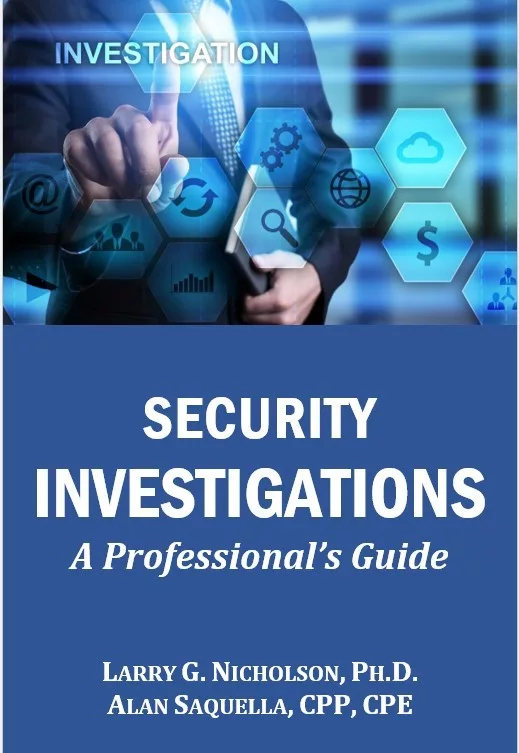Partner Perfect

It’s a partnership. Chief
security officers, systems integrators and consultants agree: The more you know
about each other prior to that final hand-shake, the better the decision. The
better the decision, the longer a successful partnership will last.
Skip Camp has been with his systems integrator a long time. How long? Well, when he first interviewed the integrator, Microsoft introduced Windows 3.1, Johnny Carson left the Tonight Show and Hurricane Andrew hit Florida.
Fifteen years later Camp, director of facilities management at Collier County Board of County Commissioners in Naples, Fla., maintains a deep, productive and satisfying rapport with Johnson Controls. A relationship record? Maybe. But there’s no doubt that Camp and chief security officers throughout the country have a greater chance at success if they do some hard-nosed homework before bringing a new integrator on board.
Heading an area that acquires property, oversees design, construction and maintenance as well as secures the government buildings, Camp’s reach is far indeed. With hundreds of buildings, the County geographically matches the state of Delaware.
“Our relationship first started with a comprehensive building automation system. Just before 9/11, we took a different approach to building management including everything that has to do with the buildings as well as security. Security has a major role but is also one of many elements,” commented Camp.
TRUST AND COMFORT
While systems integrators and facilities and security directors have identified 10 key questions to ask before starting a relationship, Camp boils it down to two words: comfort and trust.“We would go to trade shows together,” pointed out Camp, as the integrator’s staff assigned to the Collier account got to know in detail the County’s needs, growth plans and culture. On the security side, the partnership started with card access control and video surveillance. Then about six years ago, things expanded. “I wanted a consultant, too,” said Camp. So Johnson Controls “became our consultant in addition to our technology provider. At that point, a true partnership was formed.”
The director of facilities management for Collier County aims for a one-stop source of product and advice, and he got what he wanted.
“Make sure you pick an integrator who can provide comprehensive services,” commented Camp.
“Instead of low bidding it, look for the qualifications, expertise and service supports so that as many of your needs are met,” added Camp. “And make sure the integrator can grow with you, too.” He also sees real value in an integrator who can supply products from a diversity of manufacturers and sources. “I secure courthouses, use metal detectors and have officer panic alarms, among other protection strategies. So it’s not just HVAC, security video and card access.”
How successful is the Collier County partnership? Skip Camp reports that his operation has become a constant destination for visitors from around the world as he shows off his security and facility technologies.

There is a dizzying array of exciting and emerging technology
and neat ways to create “new-age” command centers but the right questions asked
before the blueprints are drawn more often hit the levels of comfort and trust
that chief security officers see as essential partnership factors.
CONSISTENCY COUNTS
Guy Grace shares consistency as a key integrator factor with Skip Camp.“There are many factors that are important and must be evaluated before contracting with the security systems integrator. Number one: Does the integrator have a proven, consistent history in providing a quality system to the end-user?” commented Grace, director of security and emergency planning with the Littleton (Colo.) Public Schools.
Grace has a warning, though.
“Keep in mind that potential integrators can talk the talk, but can they walk the walk? The so-called walk would be that the integrator’s prior and current end-users are consistently happy with the end project,” added Grace.
“What this means is that the security executive will have to ask the integrator to provide a list of prior projects. The security executive would also ask the integrator if the key people working in his/her organization’s project had also worked on those prior projects. Obviously many integrators sub-contract and it is very important to ask about whom the sub-contactor is and hold them to the same standard as the main integrator.”
Prior client feedback is essential, according to Grace.
“The security executive would have to then make contact with his/her counterparts in the end-user organizations and get feedback on those projects. The number one question to ask those end-users would aim at getting an overview of what your colleagues are doing. Let them talk about their system. As professionals we all have pride about what we are doing and it never fails that we tell others about the good things that we are all doing when asked by a fellow professional. A personal view is the best feedback and many times it spawns other ideas,” pointed out Grace.
But then get down to business. “Afterwards get to the point and ask questions like was the project completed on time and at cost? Did the integrator deliver everything that was promised? How about contractual warranty repair issues? How was the integrator in meeting these issues? Was the system installed to standards? What would you do over again? How was the overall professionalism in the company? With the final question being, would you use the integrator again?”
Added Grace, “When you are done, look at your notes and be sure that the information you received is relevant to the project you are pursuing.”
CHECK BACKGROUNDS OF ALL WORKERS
After all of the above is completed, there are other unique security issues to consider.“Since your organization values its security operations and is pursuing projects that will enhance security, the next question to ask is: Can the integrator not make you more vulnerable during and after the project? For example, if someone has any criminal intentions, nothing is better than knowing an organization’s physical security layout by installing it. Another factor: Do the people working on the system now bring a threat into your organization?” Observed Grace, “That’s why it is important that the integrator have stable, senior workman in all trades. In fact, for example, I would ask that the integrator to show clean background checks on all the employees involved from the accountant to the installer.”
With the contractual agreement, Guy Grace sees one key is pricing comfort for both partners. “Horror stories abound with integrators underbidding and end-users overpaying for projects. If you are both happy, the smoother things will go for you both. In addition, for the end-user, a very important point is to get the best warranty possible from your integrator. If you can get a 2-year or more warranty, do so. This also shows that the integrator will stand by his or her project,” concluded Grace.
There are even “before the dance begins” steps to take.
Roy Bordes has been in on the design and integration of hundreds of major security projects. He believes the chief security officer or security director needs to do some essential homework even before inviting in an integrator for a first talk.
“The security executive cannot talk to the integrator unless there is a good detailed specification of what the project entails and what is expected of the integrator from the standpoint of developing the system,” cautioned Bordes, president/CEO of The Bordes Group, which provides consulting services for clients requiring advanced technology integrated system designs.
IN-HOUSE TEAM INVOLVED
Bordes contends the security executive needs input from a minimum of three sources.“Those sources include a technical source knowledgeable about equipment and how it operates; the enterprise’s IT director, who can provide input with reference to network capabilities and using that medium for video, data and signal transmission; and the director of facility operations for whatever sites are being secured. This person is always a wealth of information relative to the many questions concerning infrastructure capabilities on a site.”
Expectations should also be discussed.
“Unless a plan exists as to what is expected of the system, many of the features will be left on the table and it is very likely that the security executive will end up purchasing features in the future that actually reside in his existing integrated system but no one has told him,” contended Bordes.
The security systems design professional has his own set of questions to ask an integrator that Bordes feels are textbook perfect. They cover:
- How long has the integrator been in business?
- What is their capability to meet the project schedule?
- Are they financially able to complete the project?
- What is their relationship with the manufacturer of the technologies being specified?
- Are their personnel certified and factory trained with reference to being able to integrate the technologies and sub-technologies?
- Does the integrator have the ability to maintain and service the system?
- Who are some other clients for whom they have installed similar systems?
- To what extent can they identify and provide to the client new technologies that are developed after the system is installed?
- What sub-technologies are involved and what is the integrator’s experience with these pieces of equipment?
- Is the manufacturer of the systems willing to accept part of the responsibility to ensure the systems are operational?
- Last but definitely not least, to whom is the system registered and does the client have the ability to purchase software upgrades directly from the manufacturer in the event the integrator goes out of business or “drops” the product line?
SPECIALIZED PROJECTS
Then again, some specialized systems integration projects cry for specialized integrators.Cynthia Freschi knows that. As president of North American Video, she has integrated some of the largest, most complex security video installations at some of the largest casinos, for instance, throughout the world.
“Just like any relationship, comfort is a significant factor. Take the time to meet with prospective companies to get a better feel for who they are and how you interact with them. The more you can count on communicating clearly, which is a critical factor on any project, the better the chance of total success,” said Freschi.
For the crucial security video project at Wynn Las Vegas, Freschi had to factor in construction of the total facility. “Our biggest challenge during the security project was construction,” said Patricia Fischer, executive director of surveillance at Wynn Las Vegas. “Most of the equipment had to be installed after walls and ceilings were in place. A detailed plan had video surveillance and security equipment on site and ready to go when needed during various stages of construction.” And Freschi, along with John Phillips, the integrator’s technical director of western operations and gaming industry veteran, personally directed the project team.
That showed the devil in the details nature of systems integration.
When it comes to a commitment to service support, Freschi agrees with Littleton Schools’ Guy Grace.

“We had to get buy in from our IT department,” said John
McDonald, Northside Hospital’s
director of security. McDonald’s long-time security systems integrator made
that teamwork challenge a positive experience.
PUT SERVICE PROGRAM UPFRONT
Observed Freschi, “In most cases, service is provided for limited terms after an installation is completed by the systems integrator and, to some degree, by manufacturers. However, long-term service should be planned at the onset of your project to assure that your system stays up and running 24/7. Ask your systems integrator for a service program proposal in your initial discussions.”NAV’s Cynthia Freschi has a simple 13-step countdown for a security video integration project.
- Determine coverage requirements / “zones of protection”
- Assess situations / location
- Discuss budget
- Evaluate specific needs / expectations
- Review proposals and design parameters
- Discuss / review short term and long term system objectives
- Review additional system parameters – networking, satellite systems
- Evaluate systems equipment and manufacturer recommendations
- Review and approve final system specs
- Enter installation phase; address concerns for new construction or rebuilds and need to work around
- Commission the system – debug and get systems on-line
- Train the staff
- Establish system service and support
PROPRIETARY VS. OPEN
Allowing an integrator to install proprietary products can cost in the future, even if it dramatically saves at first, according to Havens. “First, it’s likely that a limited number of integrators can work with a proprietary product. This can complicate future bidding processes. More importantly, a proprietary product’s manufacturer, and only that company, provides upgrades and maintenance. If that company goes out of business, their products — and the support for it — are no longer available.”Havens also sees critical elements at the end of the integration process.
“It’s important that the systems integrator provide all required closeout documentation. This includes as-built drawings, equipment owners’ and maintenance manuals and other facility-specific schedules and manuals. These important documents should be stored in a location that’s readily accessible to security management and maintenance staff for future upgrades or renovations,” commented Havens.
The convergence movement also impacts the partnership between chief security officers and their systems integrators. “Convergence should meet business needs to reduce costs, share resources and improve efficiency, and at the same time, meet the standards-based requirements of the IT department,” said Michael Cation, CEO at NovusEdge, who sees multi-level convergence between physical and logical security but also between physical security and building automation.

If your enterprise aim is convergence, no matter if physical
and logical security or physical security and building automation, make sure
the integrator candidate is well versed in the details of this trend, according
to Michael Cation of NovusEdge.
SUPER INTEGRATOR SKILLS
The “super-integrator,” contended Cation, is the firm that integrates security, building automation and IT operations.Integrators who understand new government and industry regulations also have an advantage over others, according to some chief security officers touched by new regulations and industry requirements.
Security systems integrator Tom Keener, president and founder of Keener Technologies Inc. in Hawaii, took his knowledge of the Maritime Transportation Act, which also covers the U.S. Petroleum Industry’s coastal operations, to help The Gas Company of Hawaii harden the company’s offloading ports and terminals, which were identified as a major terrorist target.
Said Keener, “The system has saved The Gas Company several thousand dollars a year by displacing 24/7 security guards” while better meeting new homeland security requirements. The integrator set up the system to respond to DHS threat levels; to handle procedure changes; and the utility’s security executive can set so-called “time zones” by using the system’s command modes to allow only designated persons into the facility.
EXPANDING THE TEAM
Teamwork is both the foundation of the partnership between the security director and his integrator, as well as the basis for success as the team expands to include other enterprise players.John McDonald, director of security at Atlanta-based Northside Hospital, knows best.
He has partnered for years with integrator Securitas Security Systems. But then the team had to be more inclusive. “We had to get buy in from our IT department. It marked a different way of doing business for us at the time. We were crossing into and sharing IT infrastructure for the first time. Due to the flawless execution of Securitas, it was and has been a positive experience. Other than that, we worked with facility services to pull cable,” said McDonald of a major security integration project.

Perfect partnerships are not only good business but can also
win national awards. The Sports Authority’s integrator/monitoring firm HSM
Electronic Protection Services just won The First Line of Defense Award, a
joint program of SDM Magazine, the sister publication of Security Magazine, and
the National Burglar and Fire Alarm Association. First Line of Defense singles
out the effectiveness of electronic security to prevent crime and catch
intruders. Pictured are Terry Hodges (right), vice president for asset
protection for The Sports Authority, inspecting a keypad at a Houston
store with Gregg Oxfeld, HSM’s senior national accounts manager.
Sidebar: A Partnership Is Honored
A strong relationship between The Sports Authority and HSM Electronic Protection Services has led to The First Line of Defense Award, a joint program of SDM Magazine, the sister publication of Security Magazine, and the National Burglar and Fire Alarm Association. First Line of Defense singles out the effectiveness of electronic security to prevent crime and catch intruders.Steve McClain, senior vice president for asset protection, The Sports Authority, explained how his company selects companies with which it works. “One of the things we look for is a company that provides services where you come together and design the model that fits your company’s needs, not just a one-size-fits-all application,” McClain declared. “HSM…had a very strong customer service orientation. If there wasn’t something on the shelf that was readily available for us in our need to protect different things, we would work together as a team and create a design or product.
“We have specifications we have designed and utilized for all our stores, and a philosophy that surrounds it that protection systems should be designed to detect possible intruders early in the stages of an event,” he noted. “So we designed specifications that have layers of protection basically to give us an early heads-up.
“That’s done with motion detectors and contacts and (security video) equipment,” McClain noted. “We have some stores that have stronger integration capabilities than others. We do a risk assessment for stores based on the areas they’re placed in and the types of merchandise they handle. An example would be a facility that would sell guns, where we would have different protection capabilities.”
“There are a lot of talented people out there,” Gregg Oxfeld of HSM said. “The customer service aspect of follow-up and making sure that you provide your best job and to exceed the expectations of what you do in any facet of your life is the key to success.”
Oxfeld estimates HSM handles security for approximately 280 stores of The Sports Authority, which is approximately 70 percent of its locations.
Sidebar: 10 QUESTIONS YOU SHOULD ASK YOUR INTEGRATOR
1. Do you have the experience and expertise to become the single source of responsibility for design, integration, installation, commissioning and service? Do you have the experience and expertise with a wide variety of security, building automation and specialty systems?The ideal integrator offers a comprehensive approach to creating and delivering diverse security and building systems tailored to meet your specific needs. This integrator should work with clients and suppliers to design and implement solutions that deliver simplicity of operation, enhanced effectiveness and cost-effective protection. This integrator needs to be the single source for turnkey installation and service of integrated systems as well as support for assessment, planning and design.
2. How do you as a systems integrator engage a systems project?
A relationship with a client typically begins at the very early stages of system design. The objective is to respect the project’s budget while meeting the needs of the facility’s prospective occupants. Involving the technology contractor early ensures that overall building architecture and systems are mutually supportive. The process results in streamlined systems that are efficient, optimized and future ready.
3. As a systems integrator, identify sources of potential cost savings.
An ideal integrator can help you make the leap into the future starting at the planning stage. They should begin with the future in mind. The ultimate function of the building should determine how it’s built; the ultimate goal of the project is growing your business. Taking a holistic view of your systems, the integrator should design and install technology to support your business objectives, not those of the design and construction team. These steps reduce infrastructure and system duplication, minimize risk and create better, smarter, more productive enterprise environments.
4. How deep and broad is your strength in computer and communications technologies?
Especially when working with your information technology area, an integrator that has computer and communications specialists – often certified through companies such as Microsoft and Cisco, to name two – talk the language of IT while naturally handling the electronic security aspects of the projects. It is better for your integrator to have such resources in-house. If not, get more details.
5. Do you have a national presence or close partners that can handle my needs across the nation or globally?
With an aim for a close partnership between you and your integrator that will last longer than, say, consultant advice, the ability to go to one firm to provide solutions, standardize systems, upgrade and provide maintenance without geographic limits is important. Even if you are not now spread out geographically, companies grow, acquire others or have to set levels of security at contractor sites or other areas.
6. What is your business philosophy when it comes to equipment selection?
Often the more types and brands of equipment your integrator handles or is knowledgeable about, the better. Proprietary approaches are yesterday’s way of doing business. Open systems, interoperability and scalability are essential today. Integrators that limit their selection may be as much working for the equipment manufacturer as for you.
7.What other enterprises are you working with? Please provide me with some client contact information at my level/title at those enterprises.
Talking with other clients can be educational. Make sure the references are at your level; colleagues are often more honest among themselves. Also explore the professional and technical organizations of which your integrator is a member. Those with a diversity of affiliations – security, computer, communications, users groups, etc. – show a commitment and knowledge base to handle the diversity of technologies involved in today’s security and building projects. Contact the appropriate people at those organizations to gather more information on your integrator.
8. Do you feel you offer competitive pricing?
For most chief security officers, pricing is not the only or highest factor. However, there should be competitiveness in pricing and it should be visible or provable.
9. What is your commitment to ongoing service after the sale? And what are the processes of that service and the depth of service staff within your firm?
Often service and maintenance are top concerns of chief security officers. Get a detailed idea of your integrator’s commitment as well as how he or she handles after sale problems. Also gather information on the depth, expertise and success of that staff when handling service issues.
10. Give me a few examples of “when things went wrong” and how you corrected them.
Any service provider will gladly talk about the winning relationships but it is often more telling to have your integrator talk about the problem projects, too, and how the problems were solved.
BONUS
Who will be your key members assigned to work on my project? Give me some details of who they are, their skills and knowledge, areas of expertise and availability by me when I need them.The more key people within the integrator company you know and of which you are comfortable, the better. Share with your team and get to know your integrator's team, in reasonable detail.
Sidebar: Try This Exercise
Getting to know each other is a two-way street. Cut down the hang-time with this exercise suggested by Jack F. Dowling, CPP, PSP, of JD Security Consultants.“Both the integrator and consultant should be asked to explain three challenges they encountered in a recent project and how they handled these. This will furnish an idea of each partner’s ability to be flexible and demonstrate their problem solving skills,” advised Dowling. He also suggested the each should present some “what if” questions about the project to see how they would address these concerns and issues.
“Determining actual independence from any particular vendor should be a focus of the first meeting. The need to be objective and unbiased is important in the attainment of the most efficient and effective technology and system,” contended Dowling.
Sidebar: Don’t Have RFP Writing Experience?
Writing a Request for Proposal can prove to be difficult to say the least, especially if you have little or no experience with it. If you don't have RFP writing experience, hire someone who has, suggested Joseph A. DiDona, director, corporate security of The Reader's Digest Association. Or go to security colleagues in your industry or business and see if you can use his or her template.Try an end-around to gather more data on the potential integrator. “Check with appropriate manufacturers to determine the integrator’s ability to provide service, the history between the manufacturer and the integrator,” pointed out DiDona. Geographic coverage for service is as important, or more so, than for installation at those remote sites.
“Ask the integrator if he or she is able to provide service to several geographic locations (if necessary) or have the capability to ‘partner’ with others who will be able to support remote locations,” added Joseph DiDona.
Looking for a reprint of this article?
From high-res PDFs to custom plaques, order your copy today!




